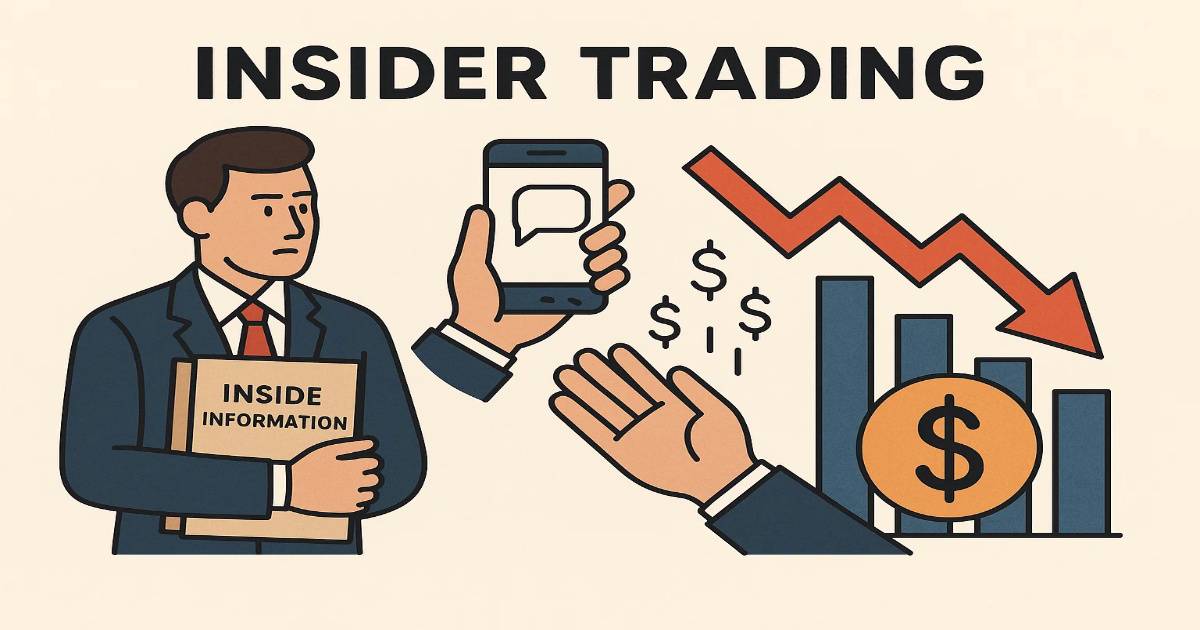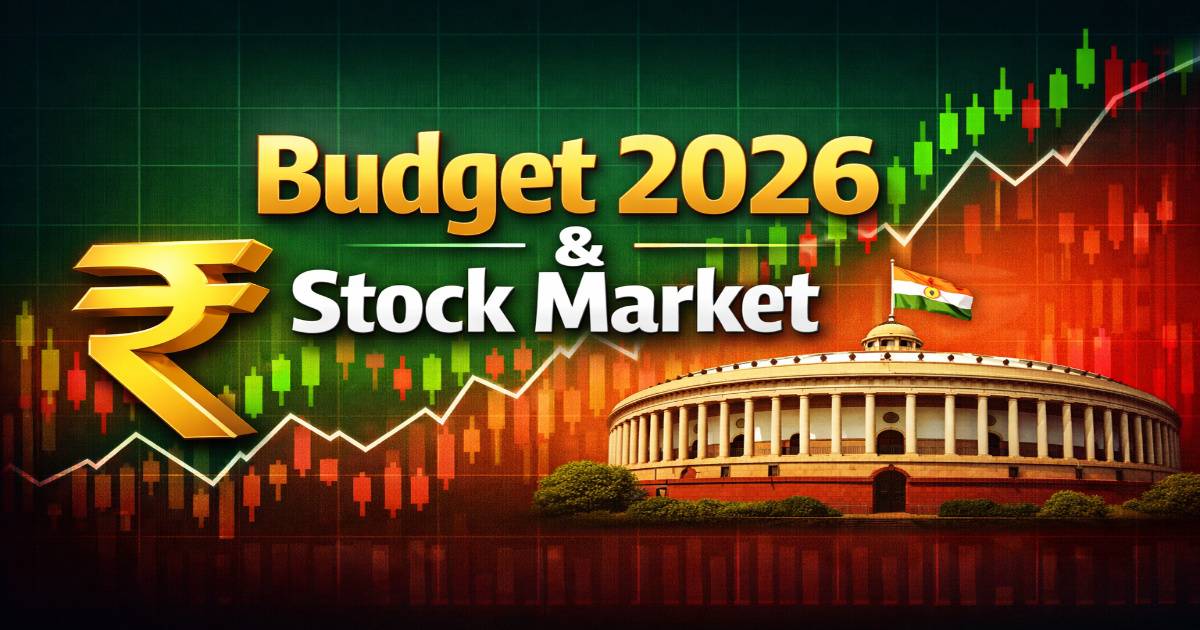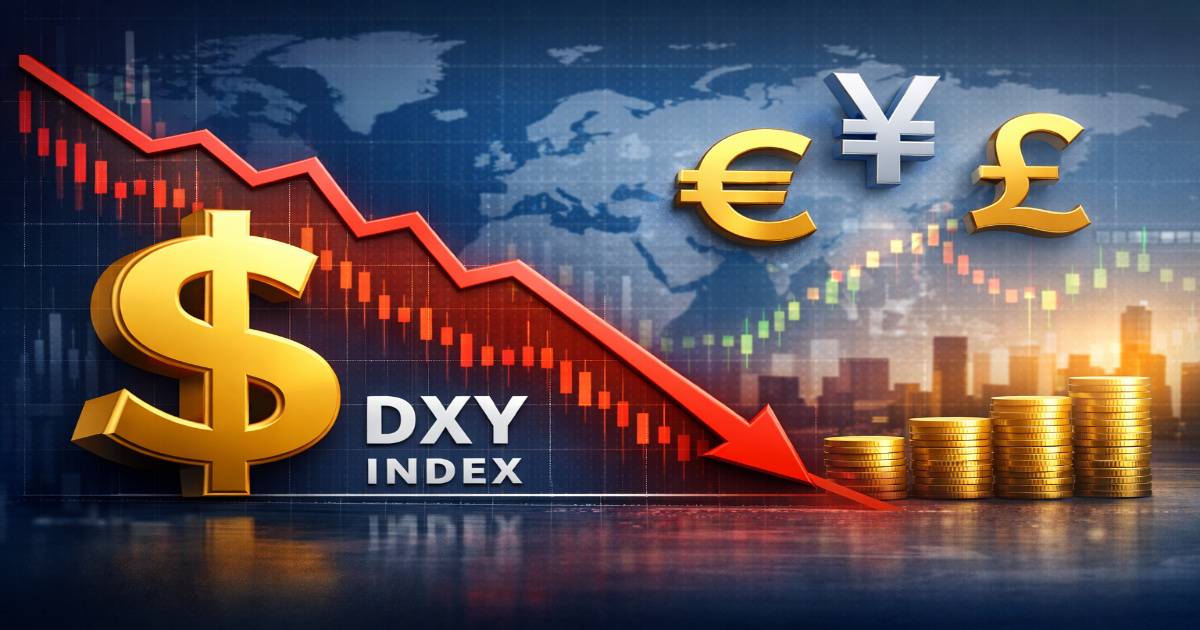Ever wondered how some people always seem to know when to buy or sell a stock—just before big news hits the market? Well, chances are they might be dealing with something known as insider trading. In simple words, insider trading is when someone uses secret company information to make money from the stock market before that information is available to the public. Sounds shady, right? That’s because it often is. let’s break down insider trading in an easy-to-understand way: what it really means, why it’s illegal (most of the time), and how it affects people like you and me who invest in the stock market.
What is Insider Trading?
Insider trading refers to buying or selling shares of a publicly listed company using unpublished price-sensitive information (UPSI)—before that information is available to the general public.
This means someone with privileged access to internal company news or financials uses it to make a profit (or avoid loss) in the stock market.
For example, if a CEO knows the company is going to post bad quarterly results and sells their shares before the public finds out—that’s insider trading.
How Does Insider Trading Work?
Insider trading often entails actions that enable those with access to confidential information to profit from it. An outline of the process of insider trading is provided below:
1. Information Acquisition
An individual gains access to confidential information like:
- Upcoming mergers or acquisitions
- Quarterly financial results before they’re published
- Regulatory actions or product launches
This information is not yet public but can significantly affect the company’s stock price.
2. Decision Making
The insider decides to buy or sell the company’s shares based on that exclusive knowledge. For example, if they know the company will post poor results, they might sell shares before the news breaks.
3. Execution of Trades
The insider or their relative/friend carries out the trade discreetly in the stock market.
4. Gaining Profit or Avoiding Loss
Once the news becomes public and the stock moves, the insider benefits from the price change, which other normal investors could not anticipate
Types of Insider Trading
Classic Insider Trading
When company insiders trade securities based on confidential, material information not available to the public, violating their fiduciary duty.
Tipper-Tippee Trading
Occurs when an insider (tipper) shares non-public information with someone else (tippee), who then trades based on that tip.
Trading During Blackout Periods
Insiders buy or sell shares during restricted periods (blackout), when trading is prohibited due to sensitive upcoming disclosures.
Front Running
A broker or trader places orders ahead of client trades, using advance knowledge to profit unfairly at the client’s expense.
Misappropriation
Involves using confidential information obtained from a trusted source (like a lawyer or consultant) to trade stocks illegally.
Effects of Insider Trading on the Stock Market
Illegal insider trading has a negative impact on the market and investors. Here’s how:
| Effect | Explanation |
|---|---|
| Unfair Advantage | Insiders benefit at the expense of unaware public investors. |
| Loss of Trust | Retail investors lose faith in the transparency of markets. |
| Volatility | Sudden, unexplained price movements can shake investor confidence. |
| Legal Risks | If discovered, it leads to penalties, bans, and reputational damage. |
Hypothetical Examples of Insider Trading
Insider trading hypothetical cases might assist in explaining how this illegal practice might arise and its potential effects. Here are a few hypothetical situations:
- A publicly traded company executive learns that the upcoming earnings report will be substantially better than anticipated. The executive buys many shares before the report’s release knowing that this information will probably cause the company’s stock price to soar. The stock price does fly after the release of the favorable earnings report, enabling the executive to sell the shares at a sizable profit.
- A scientist involved in a ground-breaking medicinal experiment hears that the results are overwhelmingly encouraging. The scientist covertly buys shares in the pharmaceutical business, knowing this information will cause the stock price to soar. The stock price increases when the positive trial findings are announced, allowing the scientist to sell the shares at a profit.
Examples of Insider Trading
real-life examples of insider trading in india
Axis Bank Case (2021)
What Happened:
SEBI penalized two employees of Axis Bank for leaking confidential financial data (UPSI) to market operators via WhatsApp before results were announced.
Outcome:
SEBI imposed fines and restricted trading by the individuals involved. The case highlighted how even messaging apps are monitored for suspicious data sharing.
Reliance Industries Case (2007)
What Happened:
SEBI alleged that Reliance Industries manipulated shares in its subsidiary Reliance Petroleum by taking large positions using insider information.
Outcome:
SEBI fined RIL ₹447 crore for “unfair trading practices”. Though not classic insider trading, it involved misuse of insider advantage.
Deep Industries Ltd (2021)
What Happened:
SEBI found that a company official traded shares based on internal financial results before public disclosure.
Outcome:
SEBI barred the person from accessing the markets and imposed financial penalties.
Global Insider Trading Examples
Rajat Gupta – Goldman Sachs (USA, 2012)
What Happened:
Rajat Gupta, a board member of Goldman Sachs, passed confidential info to hedge fund manager Raj Rajaratnam.
Outcome:
Gupta was convicted of insider trading, sentenced to two years in prison, and fined $5 million.
Martha Stewart (USA, 2001)
What Happened:
Celebrity businesswoman Martha Stewart sold shares of biotech company ImClone after getting insider info that a drug was rejected by the FDA.
Outcome:
She was convicted of obstructing justice and lying to investigators. Served five months in prison.
Sam Waksal – ImClone Systems (USA)
What Happened:
As CEO of ImClone, he tipped off friends and family about an upcoming FDA rejection of the company’s key drug.
Outcome:
Waksal was sentenced to seven years in prison and paid heavy fines. His tip indirectly led to Martha Stewart’s case.
SEBI Regulations Against Insider Trading
Section 11(2) E of Companies Act, 1956 mainly prohibits insider trading for the following reasons –
- To provide equal opportunities to every participant in the market
- Ensure fairness and transparency in all transactions
- Offer free flow of information and prevent information symmetry
The following information is deemed sensitive. Possession of such information by a trader may expose him/her to insider trading litigations-
- Intended dividend declaration
- Periodic financial reports
- Buy-back or issuance of securities
- Major changes in policies or operative plans for the company
- Any upcoming takeovers and/or mergers
When Is Insider Trading Legal?
1. When Trades Are Disclosed Publicly to SEBI
Company insiders (like directors, promoters, or executives) are allowed to trade their company’s shares if they report the trade to the stock exchange and SEBI within the prescribed timeline.
Example: A company director buys shares during an open trading window and reports the transaction to SEBI within 2 working days.
2. When Done During the “Trading Window”
Companies define specific periods (called trading windows) when insiders can buy or sell shares. Trading within this period, with no access to UPSI (Unpublished Price Sensitive Information), is legal.
Example: An employee buys shares after the quarterly results are publicly declared — this is legal since no UPSI is used.
3. When There Is No Access to UPSI
If an insider trades without access to any non-public, price-sensitive information, it is not considered illegal.
Example: A mid-level employee in HR buys shares without knowing any internal financial or merger-related news — this is not insider trading.
4. When Pre-Clearance Is Taken
Some companies require insiders to get pre-clearance from the compliance officer before trading. If this process is followed correctly, the trade is legal.
5. When Trading Through Pre-Declared Trading Plans
SEBI allows trading plans where insiders can pre-schedule their trades in advance (with at least 6 months’ notice). If trades happen as per this plan, it is considered legal — even if UPSI is available at the time of execution.
Example: A CEO files a trading plan with SEBI and executes it six months later, despite being aware of a product launch at that time.
| Condition | Legal? | Reason |
|---|---|---|
| Director buying during trading window with SEBI disclosure | ✅ Yes | Transparent and compliant |
| Employee buying with no UPSI access | ✅ Yes | No advantage over public |
| Trading based on leaked merger info | ❌ No | Violates SEBI norms – misuse of confidential info |
| Trading during blackout period | ❌ No | Period-specific restriction |
| Using pre-declared trading plan | ✅ Yes | Approved and delayed execution avoids manipulation |
FAQs
What is insider trading in simple words?
Insider trading is when someone trades a company’s shares using confidential information that is not yet available to the public.
Is all insider trading illegal?
No. Insider trading is legal if the insider trades during the permitted window and discloses the trade to SEBI. It becomes illegal if based on unpublished price-sensitive information (UPSI).
Who is considered an ‘insider’?
An insider can be a company’s director, employee, auditor, consultant, lawyer, or even a relative who has access to confidential company information.
What is UPSI ?
UPSI refers to confidential information that can affect a company’s stock price when made public — like mergers, results, or product launches.
What are the penalties for insider trading in India?
As per SEBI, penalties can include fines up to ₹25 crore or three times the profit gained, and imprisonment up to 10 years.
Can insider trading affect retail investors?
Yes. Insider trading creates an unfair playing field, where insiders benefit while common investors suffer losses unknowingly.








